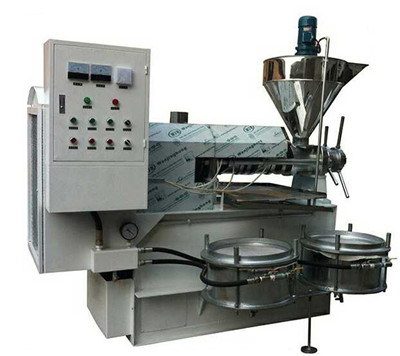
Author:Jintai networks Modified date:2024-7-30 10:56:28

The Philippines, known for its rich agricultural produce, has long been a significant player in the global cotton market. However, the traditional methods of cottonseed processing have often been time-consuming, labor-intensive, and less efficient. This has led to a growing demand for innovative solutions that can improve the efficiency and profitability of cottonseed processing. In response to this need, corn oil press machines have emerged as a revolutionary solution for cottonseed processing in the Philippines.
**Traditional Methods vs. Modern Techniques**
Traditionally, cottonseed processing involved manual extraction of oil from the seeds, which was not only labor-intensive but also resulted in low yields. The introduction of corn oil press machines has significantly transformed this process. These machines use advanced technology to extract oil from cottonseeds efficiently and effectively, resulting in higher yields and better-quality oil.
**Advantages of Using Corn Oil Press Machines**
1. **High Efficiency:** Corn oil press machines are designed to handle large volumes of cottonseeds, ensuring that the processing is done quickly and efficiently.
2. **Improved Yield:** Compared to traditional methods, these machines can extract a higher percentage of oil from the seeds, leading to increased profitability for farmers and processors.
3. **Quality Control:** The machines ensure consistent quality of the extracted oil, which is crucial for meeting international standards and fetching better prices in the global market.
4. **Energy Efficient:** Many modern corn oil press machines are designed to be energy-efficient, reducing operational costs and environmental impact.

5. **Versatility:** These machines can also process other types of seeds, making them a versatile investment for those involved in various aspects of the agricultural industry.
**Challenges and Solutions**
While the adoption of corn oil press machines brings numerous benefits, there are challenges that need to be addressed to ensure their successful implementation in the Philippines:
1. **Capital Investment:** The initial cost of purchasing and setting up a corn oil press machine can be high. Government subsidies and loans can help small and medium-scale farmers invest in this technology.
2. **Training:** Proper training is essential to operate and maintain these machines effectively. Manufacturers and local governments should provide training programs to ensure smooth operation and longevity of the machines.
3. **Market Access:** Ensuring that the processed cottonseed oil meets international standards and has access to global markets is crucial for the success of this venture. Collaborations between local producers and international buyers can facilitate this.
**Conclusion**
The introduction of corn oil press machines in the Philippines has revolutionized cottonseed processing, offering numerous advantages over traditional methods. By addressing the challenges associated with their adoption, the country can further enhance its position in the global cotton market, ensuring sustainable growth and profitability for local farmers and processors.
Prev :
Advancing Together: The Application of Small Oil Press Machines in Brunei's Walnut Industry
Next :
East Timor's Agro-Industrial Leap with Advanced Camellia Seed Oil Press